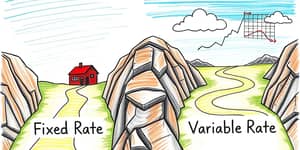
In an era of uncertain markets and fluctuating interest rates, finding the right place to park your cash has never been more important. A high-yield savings account can transform your emergency fund, vacation stash, or long-term savings plan by offering rates that far exceed the meager national average of 0.38%. By leveraging the power of compound interest and avoiding common banking fees, you can accelerate your progress toward financial goals. This guide dives deep into the top online accounts as of July 2025, equipping you with the knowledge needed to choose confidently.
Traditional brick-and-mortar banks often struggle to offer competitive rates because of high operational overhead. In contrast, online-only institutions pass those savings back to customers through higher yields. When you compare a rate of 5.00% APY at providers like Varo Bank, AdelFi, and Fitness Bank to the national average, the difference becomes striking. Over time, compound interest accelerates your savings growth, turning modest balances into more substantial sums without additional deposits.
Consider a $5,000 balance: at 5.00% APY, you’d earn about $250 in one year, versus just $19 under the 0.38% average. That extra $231 can fund monthly groceries or build an emergency buffer. By choosing a high-yield account, you effectively enlist your money to work harder for you, with minimal effort and maximum transparency.
Moreover, many online banks impose no monthly maintenance fees, eliminating hidden costs that can otherwise eat into your returns. The combination of elevated rates and fee-free access means your principal stays intact and grows uninterrupted.
While the headline APY is often the biggest selling point, a truly beneficial savings account blends high rates with practicality and reliability. Before committing your funds, evaluate the following elements:
Below is a detailed comparison of the leading online savings accounts. Each option delivers exceptional APYs, straightforward requirements, and value-added features to enhance your banking experience.
Each of these providers offers no hidden fees or complicated requirements, making it easy to open and manage your account online. Whether you prioritize top-of-market rates or advanced savings features, you’ll find an account suited to your style.
Savings account APYs are inherently variable and typically correlate with changes in the Federal Reserve’s benchmark rates. In periods of rate cuts, banks may lower yields gradually to maintain profitability. Conversely, promotional rates can temporarily boost APYs to attract new customers, only to revert to standard rates after the introductory period.
Federal Reserve forward guidance and economic indicators influence short-term yields. When inflation surprises to the upside, banks may respond by trimming rates more aggressively. Always review historical rate charts and bank communications to gauge how likely your current rate is to persist.
Before opening any account, read the fine print on promotional offers and check the bank’s track record for maintaining competitive rates over time. A stable online bank with a history of consistently high yields can be more reliable than a less established challenger offering fleeting bonuses.
While a high APY is undeniably attractive, the best savings account aligns with your broader financial ecosystem. Consider these additional factors:
Security and convenience also matter. Look for robust encryption, multi-factor authentication, and biometric login options. A user-friendly dashboard that displays recent transactions and projected interest helps you stay informed and in control.
Once you’ve selected your account, it’s time to actively nurture your balance. Employ the following strategies to give your money an edge:
First, set up automatic transfers from your primary checking account. By automating deposits—even small, regular amounts—you ensure consistent contributions without relying on willpower alone. Next, take advantage of subaccounts or “vaults” for specific goals such as travel funds or an emergency cushion. Tracking progress visually motivates you to stay on course.
For balances that exceed your short-term needs, consider diversifying by laddering certificates of deposit (CDs) to capture slightly higher yields in exchange for fixed terms. CDs lock your rate for a set period, but staggering maturities preserves liquidity and flexibility. Whenever you receive windfalls—tax refunds, bonuses, or gifts—direct a portion to your HYSA to boost momentum.
Finally, shop around periodically. Market-leading rates can shift quickly, so re-evaluate your savings account every six to twelve months to confirm you’re still earning top-tier returns.
High-yield savings accounts, money market accounts, and CDs each serve different financial priorities. HYSAs offer instant liquidity and variable rates, making them ideal for emergency funds and short-term goals. Money market accounts may provide ATM access and check-writing privileges but often impose higher minimums.
Certificates of deposit typically deliver slightly higher fixed rates, rewarding patience in exchange for restricted access. Laddering multiple CDs creates a balance between earning power and periodic liquidity, preventing your entire savings from being locked away at once.
Mapping out your timeline and cash flow needs will help you balance the flexibility of a savings account against the disciplined growth of longer-term instruments.
Interest earned on savings accounts is considered taxable income by the IRS. You will receive a Form 1099-INT if your interest surpasses $10 in a tax year. To prepare, tally expected earnings and factor them into your tax withholding or estimated payments to avoid surprises at filing time.
Municipal bonds and tax-advantaged accounts like IRAs may offer alternatives if you wish to minimize taxable interest. However, for most savers, the simplicity and accessibility of taxable high-yield accounts outweigh the marginal tax cost.
Choosing the right high-yield savings account can be a defining step toward financial resilience and long-term success. By prioritizing competitive interest rates, fee-free access, and user-friendly tools, you empower your money to grow more efficiently. Start by comparing current offers, reading terms carefully, and leveraging automation to maintain momentum. In doing so, you’ll build a solid foundation for future milestones—whether it’s a down payment, dream vacation, or a robust safety net for life’s uncertainties.
References













